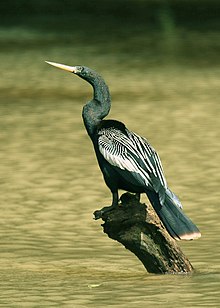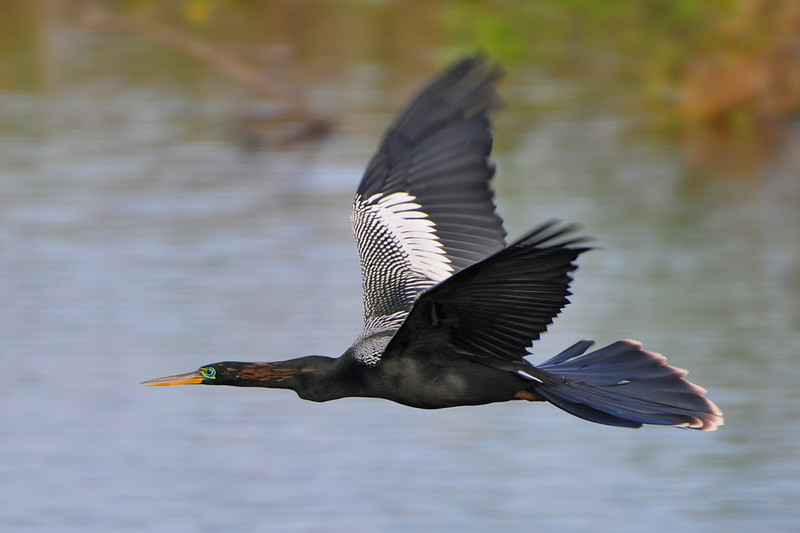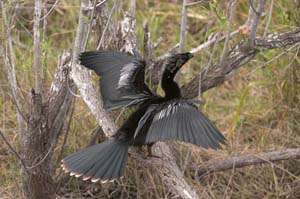Anhinga Biography







The Anhinga (Anhinga anhinga) is commonly known as the snakebird, black darter or American darter, and it is closely related to the darter species. The Anhinga has a wingspan of about 4 feet, and is between 32 to 36 inches in length. They are black in color, with smallish heads (almost snakelike), long bills and have patches of almost a silver color on their wings. The most common areas to find the Anhinga, would be South America, between the southeastern United States up to Argentina, and in specific warmer areas of North America.
The Anhinga does have a preferred diet of fish, but will also eat water snakes, tadpoles, frog eggs and young alligators. Therefore, they will live near streams, water canals, fresh water swamps, bays, lagoons or any watery area that can provide them with food. Anhingas have an extraordinary way of hunting for their food. The feathers of an Anhinga are fully wettable; this enables them to dive underwater for their catch, staying under water for quite lengthy periods at a time. They will either swim with only their heads sticking out and dive into the water, or dive down from the air. This significant feature also has its negative side, chiefly a loss of body heat. It is not uncommon to find a snakebird sitting in the sun with its wings open for hours, as they dry their feathers and warm up again.
Prey is often speared with their bills and either tossed into the air so that fish can be swallowed head first, or at times, the catch can get stuck on their bills, forcing the Anhinga to return to shore and hit the fish off against the rocks. When Anhingas’ are heading toward their breeding time, a blue ring forms around their eyes. They build their nests in trees above the water, and construction materials are usually sticks, after which nests are lined with leaves or moss. The female snake-bird will lay about three to five eggs, and the eggs are light blue in color. The incubation period for the eggs is approximately a month.
Anhinga

Anhinga

Anhinga

Anhinga

Anhinga

Anhinga

Anhinga
 Anhinga
Anhinga


Anhinga
Anhinga Looking for Breakfast
Anhinga Feeding
No comments:
Post a Comment